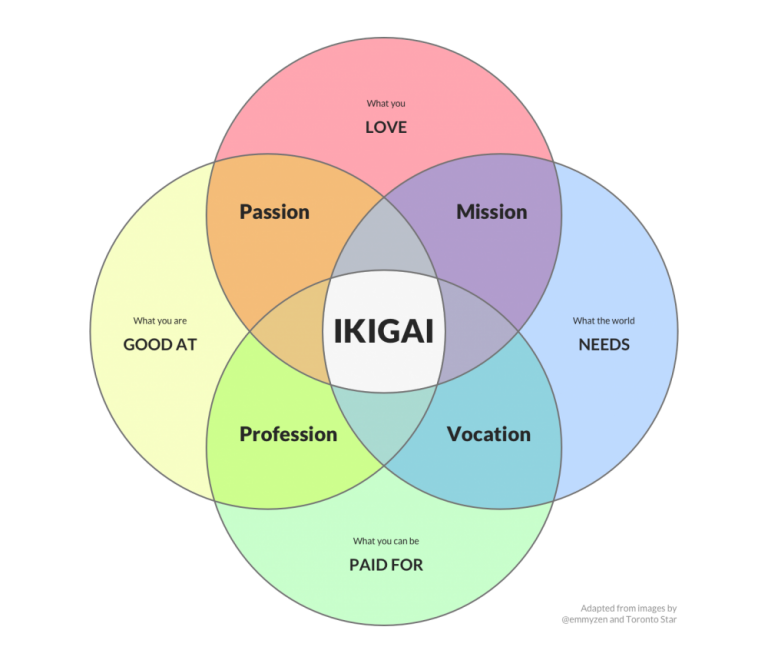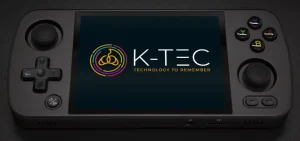Ikigai
Ikigai is a Japanese concept that, roughly, can be translated as “a reason for being”. You can see from the diagram that Ikigai is the intersection between what you love, what you can be paid for, what you’re good at, and what the world needs.
At various times in my life, I’ve spent time in all four intersections. These are named Passion, Profession, Vocation, and Mission in the diagram. Before K-TEC, I’d never been in the central intersection. I’d never found Ikigai.

How does K-TEC fulfil Ikigai?
What you love
I love retro gaming
I discovered this in 2018. I bought a media device for my new television and I realized it could also play old games. My retro gaming journey began with Super Metroid. I completed the game for the first time ever. Then I did it again. I realized I could play Ocarina of Time in 720p with high-res textures. I completed that game too.
The journey has taken me through all the 3D Zeldas. It’s taken me back to the ZX Spectrum version of RoboCop (what a soundtrack!). I now plan to track down games I played, when I was very young. On the Acorn Electron (the slightly less capable sibling of the BBC Micro).
Given the number of YouTube guides available for these games, I know I’m not alone in this new-found love.
What you can be paid for
This one is self-explanatory. We all have to pay the bills.
What you’re good at
I had a long career as a professional Software Developer. What I did best, though, was to get the most out a piece of code. Let’s achieve the same thing with half the amount of code. Let’s get the same result, but with half the computation time. Let’s make this interface less confusing, but also more flexible.
This is the approach I bring to retro gaming devices. How can we improve performance, whilst also giving flexibility to the user? How can we supply the best set-up out of the box, whilst also giving the user the freedom to tinker?
What the world needs
There is a vibrant market in retro gaming devices. They’re becoming ever more powerful and capable of emulating an increasing number of consoles and handhelds. Competition is driving improvements in ergonomics and quality.
However, I see the same advice being given over and over again to new users:
- get a brand-name SD card; the one that was provided will fail
- install custom firmware; it’ll be more stable and give better performance
I see the same questions being asked again and again:
- my SD card has stopped working and I can’t play games any more; how do I get them back?
- what are the best settings to use with this game/system?
There are so many great retro gaming devices out there which can play games that span many decades. Yet, most of them don’t reach their full potential. Many users lack the time, skill, or confidence to make the most out of their device.
That’s what K-TEC does for our customers. With our devices, you get a brand-name SD card that has a lifetime guarantee. You don’t have to worry about it failing. We pre-install custom firmware, so your device already has better performance and stability. We research and apply the best game and system settings. so you’re going to have a great experience out of the box.
These great retro gaming devices deserve to reach their potential. That’s what the world needs.
K-TEC has these core values
K-TEC will continue to achieve Ikigai. To that end, the business has these core values:
Customer-focused
We love retro gaming as much as you. We know you want to start up your device and enjoy the nostalgia of games from yesteryear. Nothing should get in the way. It shouldn’t be necessary to worry about the durability of your SD card. It shouldn’t need endless tinkering to get the most out of a game.
It shouldn’t be scary to ask for support. Retro gaming should be fun. You should feel comfortable in asking for help when it’s needed.
Performance-focused
Every retro gaming device has an upper limit to the consoles/handhelds it can emulate. But let’s achieve that upper limit. If that threshold is PS1, then let’s make sure those games run as smoothly as possible. If a device can play less-demanding GameCube games, then let’s make sure we have optimized settings for those games.
See K-tec starts repository of optimized PPSSPP settings for RK3566 devices (Anbernic RG503/RG353P…) for an example of this approach.
Community-focused
When we learn how to improve settings for a game or emulated system, we should share that knowledge. Let’s make it available to anyone who wants it.
When people reach out for help on social media to make the most of their device, let’s share our skills. Offering guidance is beneficial to all.
When the software on these devices doesn’t work well, let’s make it better. We should make those improvements available to everyone.
We get to spend time learning how to make the most out of a range of devices. We want to share that with the community.
What do you think?
Do you like our approach? (Check out our web-shop)
Should a business focus on different things?
Let us know in the comments below.

